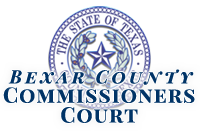A San Antonio woman was contacted by a foreclosure rescue group after she became delinquent on her home mortgage in Spring 2017. She agreed to sell her home in exchange for the company paying off the approximately $92,000 remaining on the mortgage and $2,000 to cover her moving expenses. The group created a trust naming both her and the group 50 percent beneficiaries. But the same day, they had her sign a trust modification which assigned her 50 percent interest back to the group. The modification says the group would pay $8,700 to the bank to bring it current.
The $8,700 was apparently paid to get the mortgage current, but then nobody continued to pay the mortgage. The bank contacted the woman in June 2017 to say she was late with her mortgage payment. Figuring the sale did not go through, the woman resumed paying the note. She then contacted a real estate agent to see about selling the house but was told she no longer had title to the house and couldn’t sell it. Eventually, she stopped paying on the mortgage loan and it fell into delinquency again. The house is scheduled for a March 5 foreclosure sale.
Across the U.S. in 2016, only four of these kinds of foreclosure scams were reported to BBB. In 2018, that number grew to nearly 20. While these scams may seem uncommon, they are growing rapidly each year and can be prevented if you know the signs.
The U.S. Departments of the Treasury and Housing and Urban Development recommends the following tips to avoid foreclosure scams:
•Watch out for anyone offering a HAMP modification. The Home Affordable Modification Program closed on December 31, 2017.
•Beware of advance fees. In most cases, it is illegal for anyone to charge you in advance for mortgage modification services.
•Be cautious of big guarantees. Only your mortgage company can grant a loan modification, never a third party. These guarantees may be false claims.
•Beware of solicitors. Individuals who contact you over the phone or email may be scammers claiming to be from your mortgage company, and then they ask you to send payments to an alternate contact or address.
•Never sign over your property deed. This should only be done if you’re working directly with your mortgage company to forgive your debt.
•Maintain personal contact. Getting to know your lender or mortgage servicer personally will reduce your chances of getting scammed.
Never sign a document you don’t understand. Be sure you fully understand the situation you are committing to.
•Take action if you have already been scammed. If you have been the victim of a foreclosure scam, you should contact a mortgage servicer or attorney to assist you in the foreclosure process.
Both agencies also recommend reporting any scams you have been a victim of. You can report them directly to these agencies, the Federal Trade Commission, or to Better Business Bureau at bbb.org.











